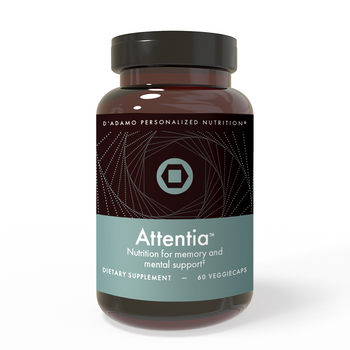Ask Dr. D'AdamoAsk Dr. D'Adamo Index | Latest Entry | Pull a Random Question |
Questions About Natural ProductsQuercetin and Tumor GenesSTUDY: Flavonoids activate wild-type p53. JOURNAL: : Oncogene 1996 Oct 17;13(8):1605-14 AUTHORS: Plaumann B, Fritsche M, Rimpler H, Brandner G, Hess RD. ABSTRACT: Flavonoids are diphenyl propanoids widely distributed in edible plants. They play a dual role in mutagenesis and carcinogenesis. Some of them act as anticarcinogens or inhibit the growth of tumour cells, whereas others act as cocarcinogens, are mutagenic or able to induce DNA damage. To further elucidate this dual role, we investigated the influence of apigenin, luteolin and quercetin on the tumour suppressor protein p53, regarding p53 accumulation, cell cycle arrest, apoptosis, and biological activity. We found that incubation of the non-tumour cell line C3H10T1/2CL8 with these flavonoids resulted in induction of p53 accumulation and apoptosis. Apoptosis occurred out of the G2/M phase of the cell cycle. The G2/M arrest seems to be p53-dependent as it did not occur in p53 knockout fibroblasts which further supports the recent finding that p53 is involved in the G2/M checkpoint control. Differences between the flavonoids tested concerned p53 accumulation kinetics as well as the biological activity of accumulated p53 and might be due to different modes of flavonoid action. These data suggest that both aspects of flavonoid effects, i.e. inhibition of tumour growth through cell cycle arrest and induction of apoptosis, are functionally related to p53. COMMENTARY: Quercetin is widely distributed in the plant kingdom and is the most abundant of the flavonoid molecules. It is found in many often-consumed foods, including apple, onion, tea, berries, and brassica vegetables, as well as many seeds, nuts, flowers, barks, and leaves. It is also found in medicinal botanicals, including Ginkgo biloba, Hypericum perforatum (St. John's Wort), Sambucus canadensis (Elder), and many others. It is often a major component of the medicinal activity of the plant, and has been shown in experimental studies to have numerous effects on the body. Flavonoids, as a rule, are antioxidants, and a number of quercetin's effects appear to be due to its antioxidant activity. Quercetin scavenges oxygen radicals,(1,2) inhibits xanthine oxidase,(3) and inhibits lipid peroxidation in vitro.(4) As another indicator of its antioxidant effects, quercetin inhibits oxidation of LDL cholesterol in vitro, probably by inhibiting LDL oxidation itself, by protecting vitamin E in LDL from being oxidized or by regenerating oxidized vitamin E.(5) By itself, and paired with ascorbic acid, quercetin reduced the incidence of oxidative damage to neurovasculature structures in skin, and inhibited damage to neurons caused by experimental glutathione depletion.(6) 1. Saija A, Scalese M, Lanza M, et al. Flavonoids as antioxidant agents: importance of their interaction with biomembranes. Free Radic Biol Med 1995;19:481-486. 2. Miller AL. Antioxidant flavonoids: structure, function and clinical usage. Alt Med Rev 1996;1:103-111. 3. Chang WS, Lee YJ, Lu FJ, Chiang HC. Inhibitory effects of flavonoids on xanthine oxidase. Anticancer Res 1993;13:2165-2170. 4. Chen YT, Zheng RL, Jia ZJ, Ju Y. Flavonoids as superoxide scavengers and antioxidants. Free Radic Biol Med 1990;9:19-21. 5. DeWhalley CV, Rankin JF, Rankin SM, et al. Flavonoids inhibit the oxidative modification of low density lipoproteins. Biochem Pharmacol 1990;39:1743-1749. 6. Skaper SD, Fabris M, Ferrari V, et al. Quercetin protects cutaneous tissue-associated cell types including sensory neurons from oxidative stress induced by glutathione depletion: cooperative effects of ascorbic acid. Free Radic Biol Med 1997;22:669-678. |

|
The statements made on our websites have not been evaluated by the FDA (U.S. Food & Drug Administration).
Our products and services are not intended to diagnose, cure or prevent any disease. If a condition persists, please contact your physician.
Copyright © 2015-2023, Hoop-A-Joop, LLC, Inc. All Rights Reserved. Log In


